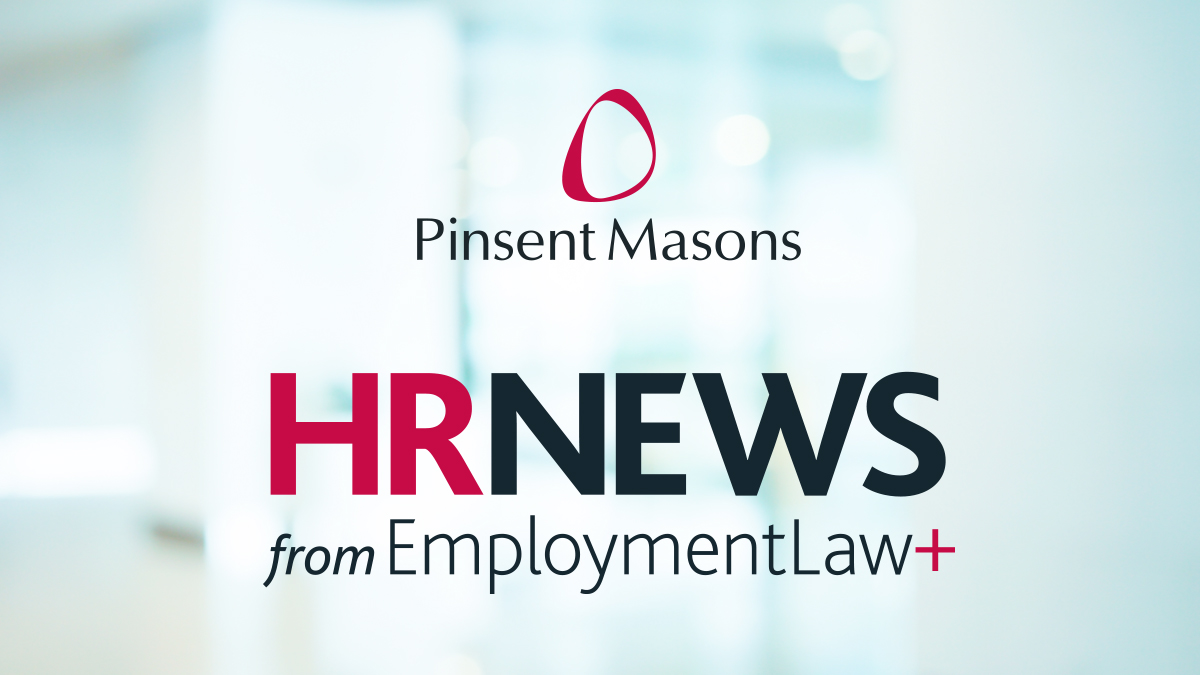The Employment Rights Bill continues its journey through Parliament and is expected to bring in some of the most significant changes to UK employment law in decades. At the heart of those reforms is a new right for trade unions to request access to the workplace, not just in person, but digitally too, for the purposes of organising, representing, and recruiting members. Handling requests in the right way will be essential, and HR will have a key role to play. We’ll speak to an employment lawyer advising clients on that issue.
While the finer details are still being worked through, there’s no doubt about the overall direction: a stronger framework for union engagement and a greater expectation on employers to respond constructively and at pace. Business groups have raised concerns about the administrative and legal burden, particularly where no trade union is currently recognised, and many employers are now looking closely at what the law will require of them in practice.
Under the new framework, trade unions will be able to submit formal access requests, both physical and digital and while the Central Arbitration Committee will ultimately resolve disputes, employers are expected to engage with requests seriously and constructively. A request could come in the form of a letter or email asking to meet employees on site or share information digitally and employers may have as little as five working days to respond. Delays or blanket refusals without good reason could carry consequences, including the risk of terms being imposed, or financial penalties for unreasonable refusals.
Earlier I spoke on phone to Lucy Townley who is advising a range of clients on this issue. This is new, and it’s not finalised, so how is it shaping up?
Lucy Townley: “So at the moment, there's still quite a lot we don't know about how the new rights will work in practice, and that's specifically the case with the digital access rights. So we know that the Employment Rights Bill sets out the framework, but much of the detail will come later through secondary legislation, or from guidance from the Central Arbitration Committee, and those details that they provide will really matter. So for example, will unions be able to request access to Teams channels or to intranet pages, or perhaps both? Will the employers have control over what's posted, or will they have a right of removal? We just don't know yet. The other thing we've been talking to clients about is what enforcement powers the Central Arbitration Committee might have. We think that fines might be levied for people who breach these agreements but we don't know yet what that might look like. So, keeping on top of those developments is going to be really important, I think, and employers should all be watching quite closely for updates on this because it's likely that once the rules are finalised and the requests start coming in, employers will need to move really quite quickly to ensure they're compliant. So getting ahead of the game and planning in advances is crucial here.”
Joe Glavina: “So, moving on to handling access in practice. What does that mean in practice? What does that amount to?”
Lucy Townley: “So I think it's really important that where access is agreed, the terms of that access are set out in writing, and that helps to protect both parties. So it sets out what's been agreed, for example where and when the union can meet people or for how long and, perhaps, what sort of digital messaging is allowed but it also helps to avoid disputes. I think without a written document setting out the agreement there might be misunderstandings or inconsistent expectations and I think that's especially the case where access rights are being applied across different sites. We know that for lots of our clients, different sites have different relations with their union and I think what's really important here is to try and get some consistency in place through the written agreement. What that means is that if something does go wrong, so for example a trade union rep turns up unannounced or starts using a channel that wasn't agreed, the employer has something to refer back to show the union what was agreed and to get the relationship back on track there. If at some point it ends up that the Central Arbitration Committee has to get involved with a dispute in this area, I think having a written agreement to go back to really shows that the employer and the trade union are acting in good faith and had good intentions at the start of all of this, and it can sort of help get things back on track.”
Joe Glavina: “So can I ask you about training managers on all of this bearing in mind this is all going to be new for them. What are we doing for clients?”
Lucy Townley: “So to me, training on these areas is one of the most crucial steps, and it's the thing that we're talking to clients about most at the moment. So for example, line managers, security guards, receptionists, these are often the first people who will be approached about trade union access. So that might be whether somebody's turning up physically at the door to gain access physically to the site, or it may be an email landing in an inbox, but what we need is all employees needing to know what to do and, most importantly, what not to do if that happens. So what we're trying to avoid here is employees accidentally blocking access that should have been allowed or perhaps saying something that could damage trade union relations. So giving your staff simple guidance on who to notify if a union rep arrives, what should be allowed, what shouldn't be allowed, how to answer questions that employees might ask about union access, that cannot go a really long way to getting this right. That comes back to the earlier point of it's really crucial that once an agreement has been reached, all employees and union reps abide by the agreement. We know that if the terms of the agreement are accidentally breached disputes could arise and what we want to avoid here is that any organisations are accused of treating union reps unfairly, or not abiding by the terms of the agreement, which could lead to allegations of anti-union behaviour which obviously we don't want. So training on all of these issues helps, really, to ensure compliance and ultimately to protect industrial relations and employers’ reputations. What we're trying to reinforce here is this isn't about taking sides; it’s about making sure that the organisation complies with the law and also keeps things calm and professional with their trade union relationships.”
While we wait for these new laws employers are busy working on the strategic planning work that needs to be done before this becomes law. Last week Lucy talked to this programme about that. That’s ‘Trade union access rights a turning point for UK employers’ and is available for viewing now from the Out-Law website. Meanwhile, if you would like help preparing for these changes please do contact Lucy Townley – her details are on the screen for you. Alternatively, of course, you can contact your usual Pinsent Masons adviser.
- Link to HRNews programme: ‘Trade union access rights ‘a turning point’ for UK employers’
Key role for HR as UK employers face new trade union access duties
08 May 2025, 9:00 am
Lucy Townley tells HRNews how employers can prepare for new rights proposed in the Employment Rights Bill giving trade unions workplace access on request.

-
Transcript
Latest News
Editor's Pick
OUT-LAW NEWS
08 May 2025

